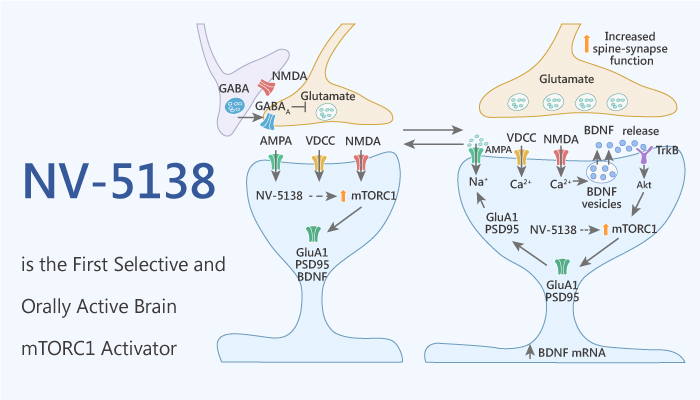Major depressive disorder (MDD) is a chronic illness. And it affects ~17% of the population and one leading cause of disability in the world. Currently, drugs that influence monoamine neurotransmission are usually applied in MDD treatment, but these drugs can take weeks to months to produce a therapeutic response, with limited efficacy. On the other hand, a single dose of ketamine produces rapid and long-lasting antidepressant effects.
Ketamine rapidly stimulates mTORC1 signaling in the mPFC, and infusion of Rapamycin, into the mPFC blocks the synaptic and antidepressant behavioral actions of ketamine. The mTORC1 signaling pathway serves as a key sensor of cellular activity and hormonal signals. In addition, Leucine is one of the key regulatory amino acids and can promote protein synthesis in large part through the regulation of mTORC1 signaling. The leucine-sensing pathway provides an approach for manipulating mTORC1 signaling. In this study, scientists discovered and identified a leucine analog NV-5138.

NV-5138 is the first selective and orally active brain mTORC1 activator, binding to Sestrin2. NV-5138 possesses rapid antidepressant effects.
In vivo studies, NV-5138 (160 mg/kg, PO, single dose) rapidly increases levels of phospho-mTOR as well as the downstream targets, phospho-p70S6K1, and phosphor-4EB-P1, in synaptosomal preparations of PFC. Not only that, NV-5138 (80 mg/kg, po, daily for a total of 7 days) also produces antidepressant effects.
Additionally, in pharmacokinetic analysis, scientists used the Male Sprague–Dawley (SD) rats weighed 250-400 g. In fact, they divided the rats into two groups, one group was administrated with NV-5138 by IV injection and the other group was administrated with NV-5138 by oral gavage. The results showed that NV-5138 is essentially 100% orally bioavailable with an elimination half-life in plasma of ~ 3 h.